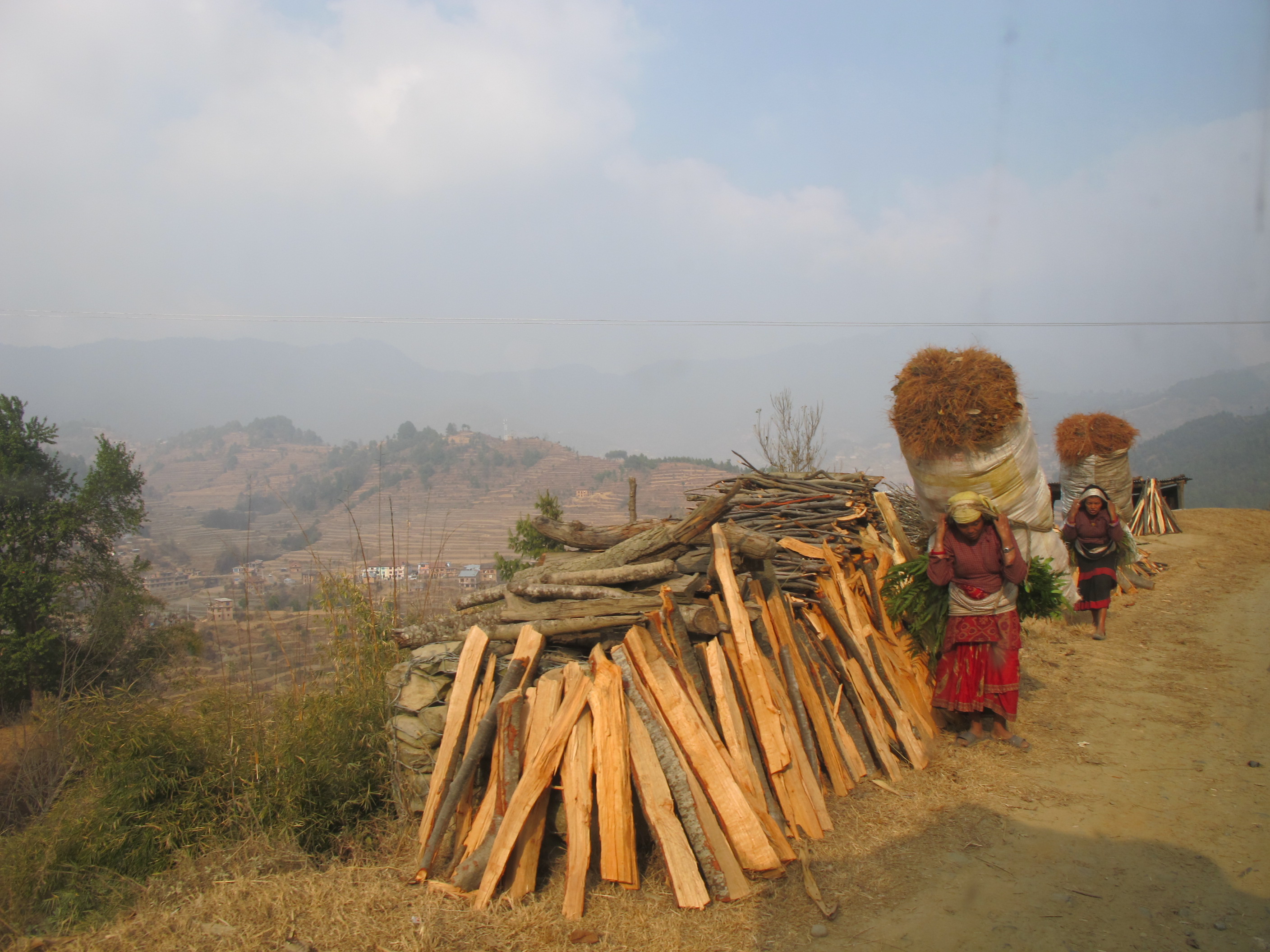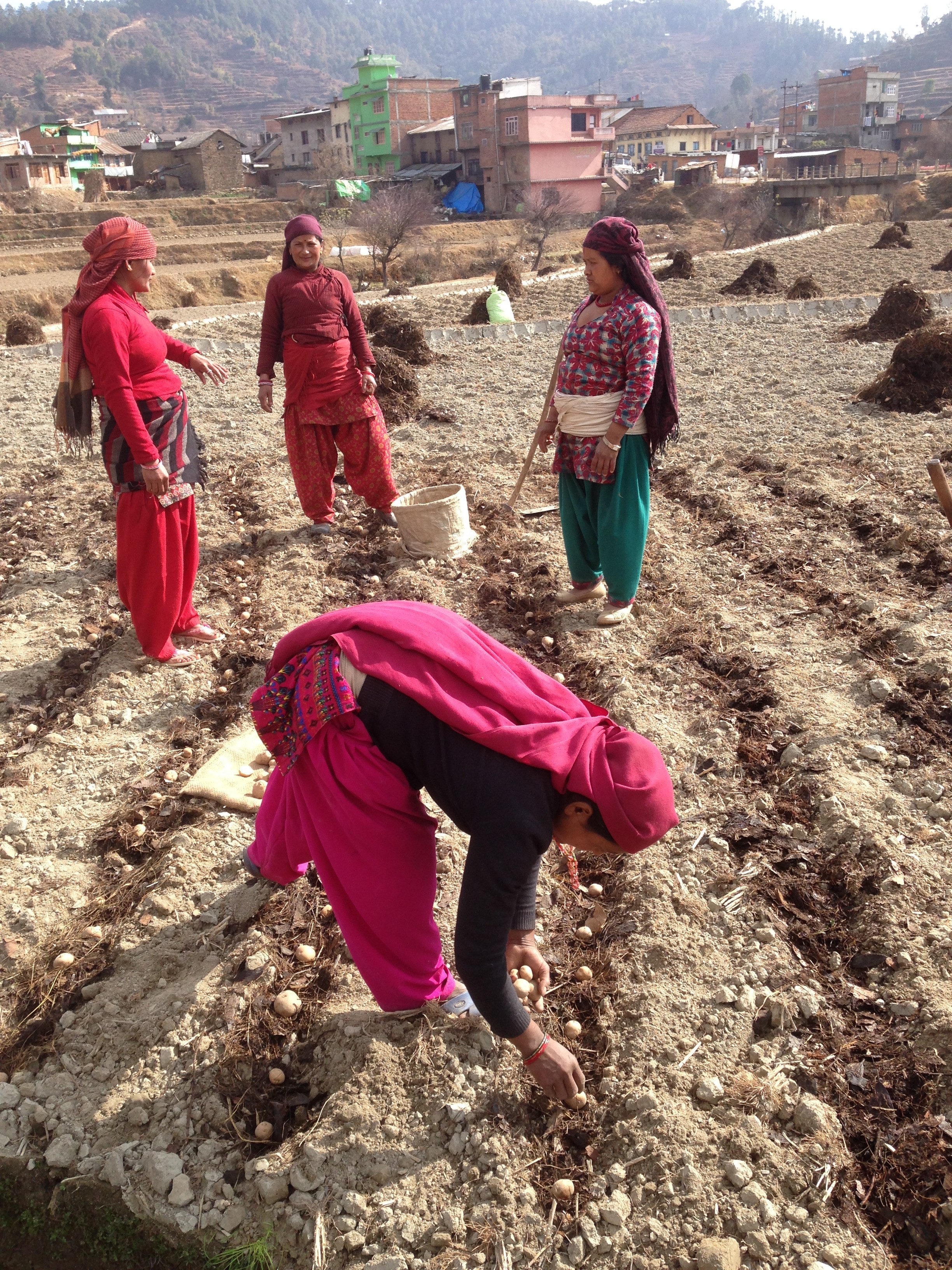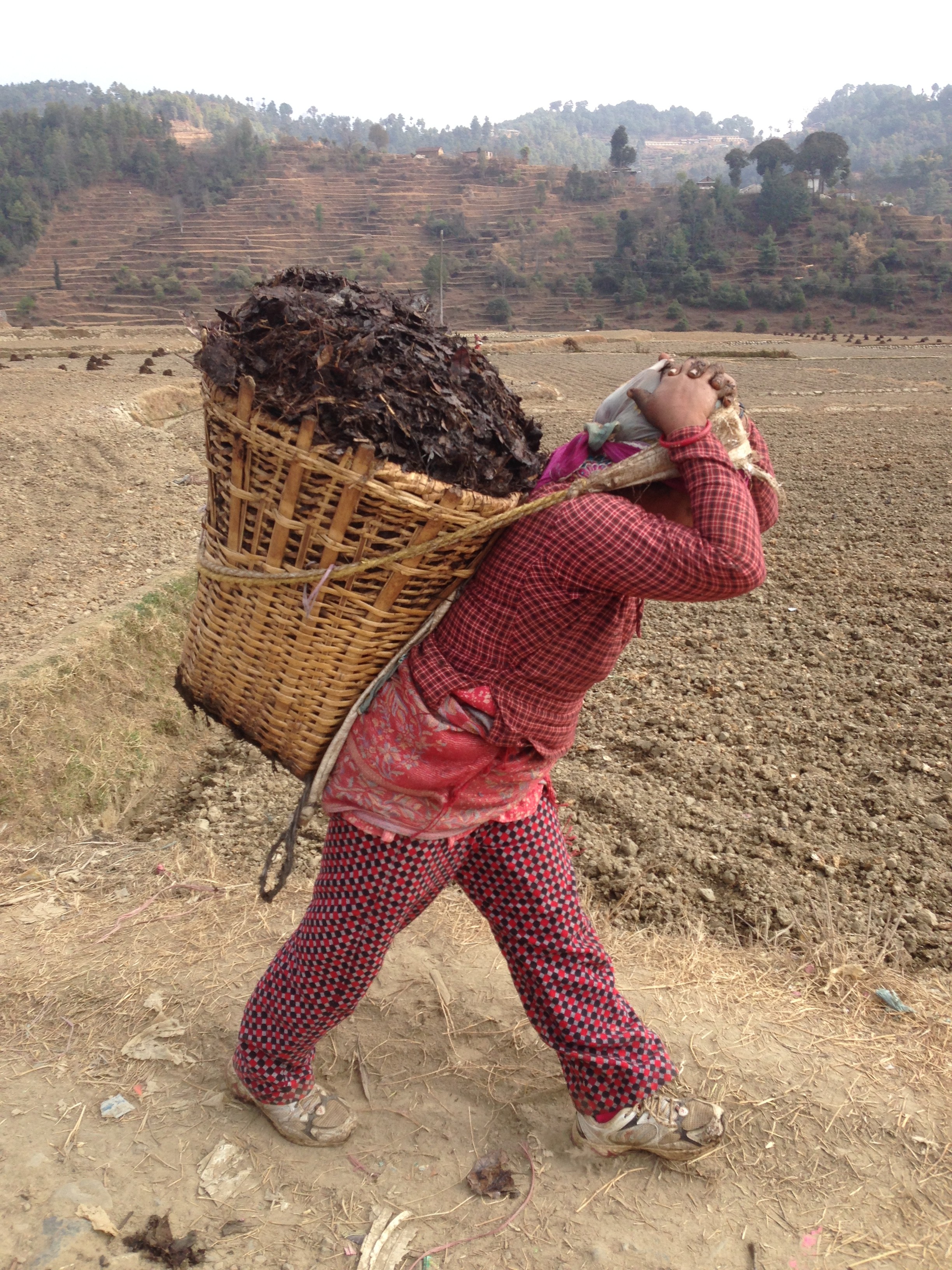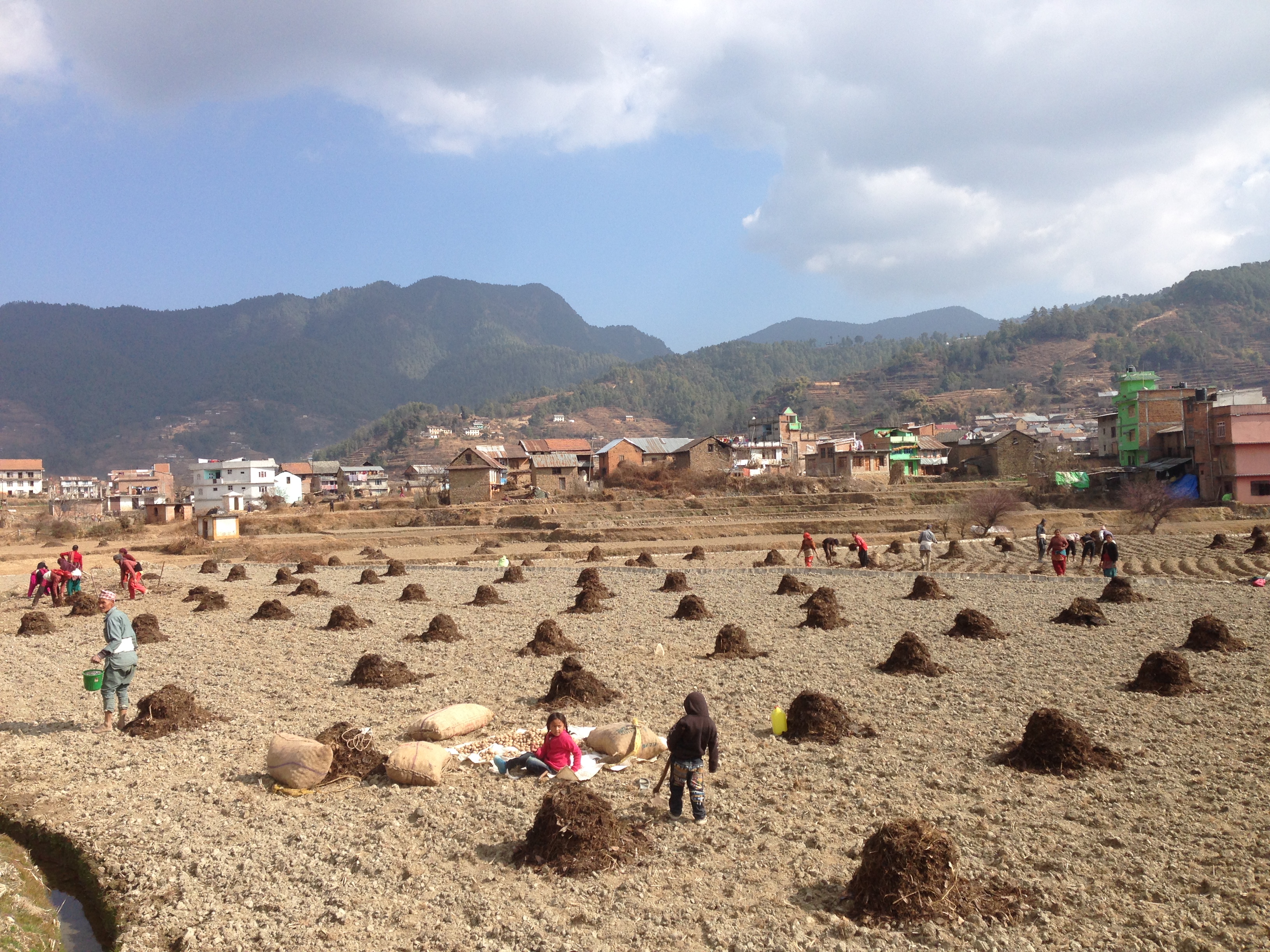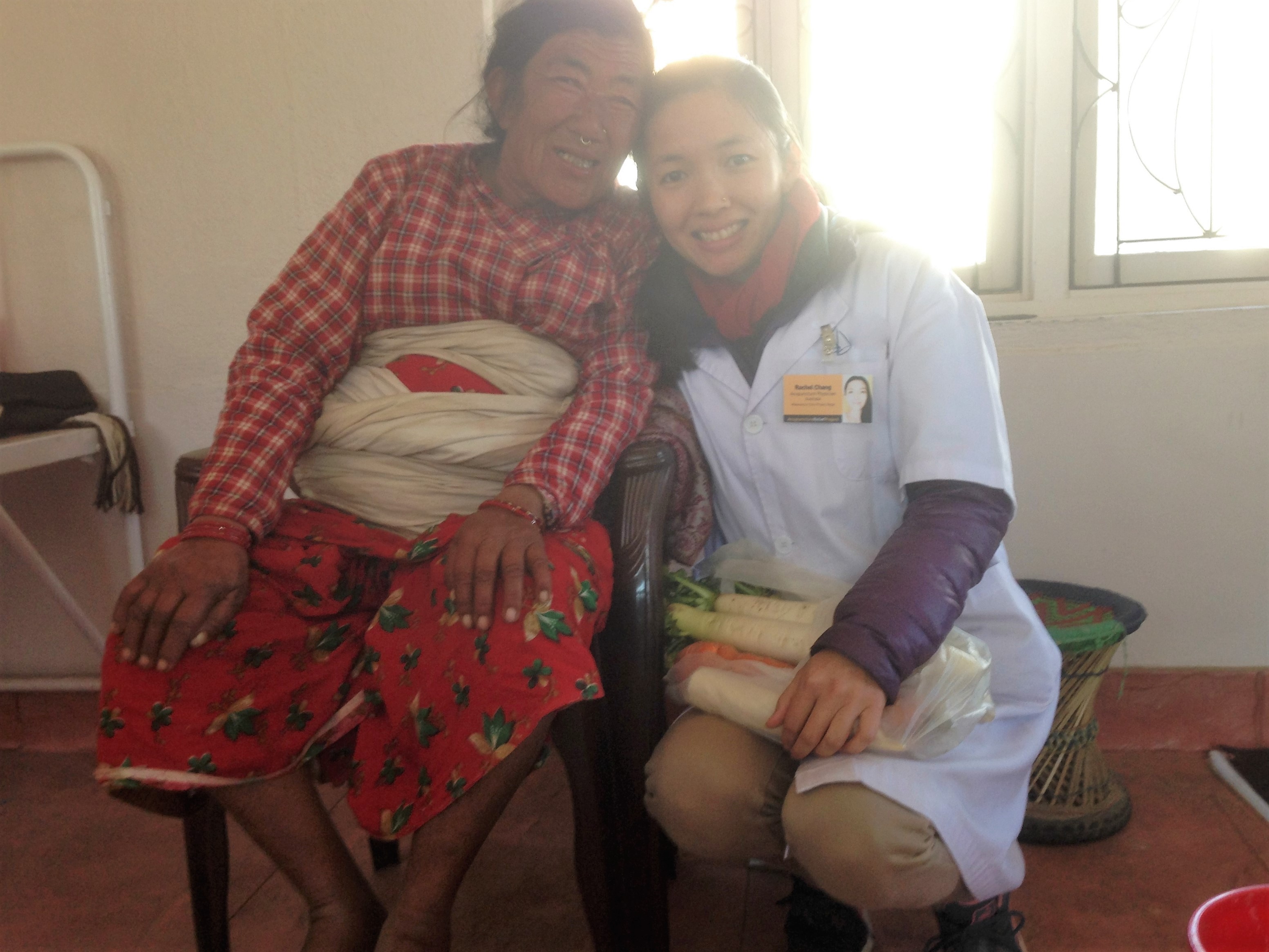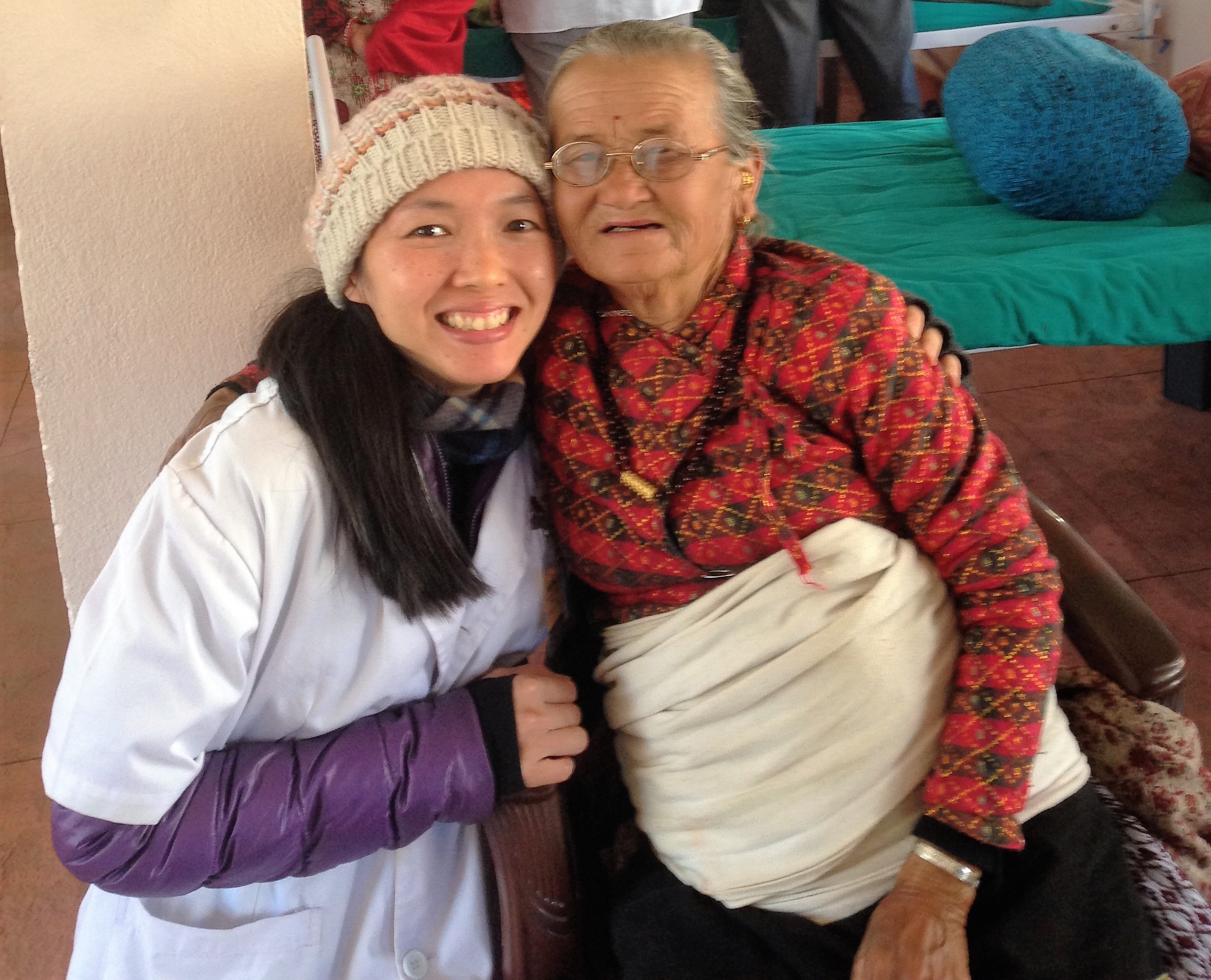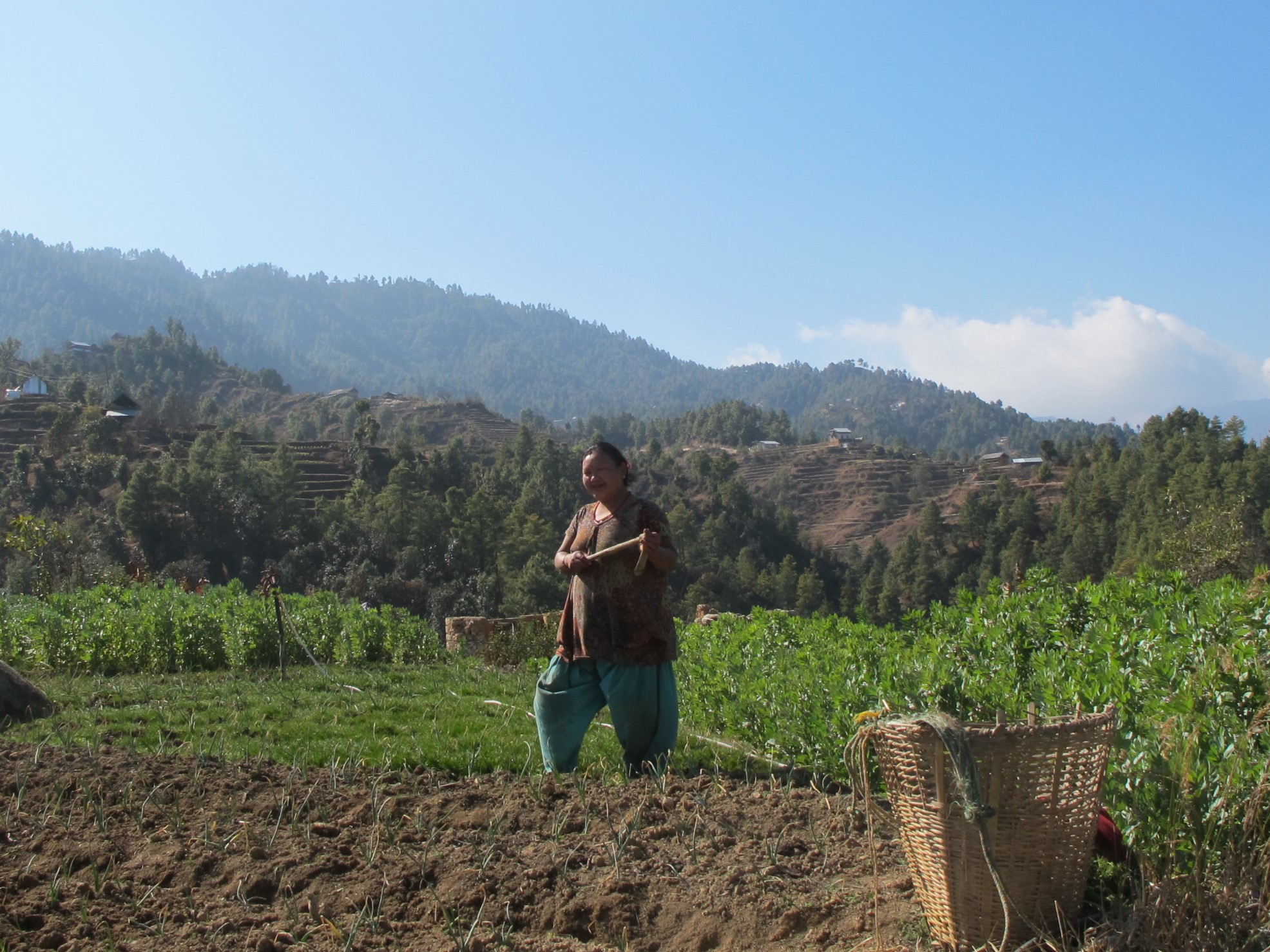One day a female farmer caught a bad cold and came to see us. When I gave her acupuncture to help her recovery, she said, ‘oh no, don’t treat my cold please, treat my knee pain instead, that’s more important, I need to work.’ To a Nepalese villager, work is life. Many older patients who could no longer work in the fields believe that it is time for them to go.
An old woman came back to our clinic one day and said joyously, “since getting acupuncture, I have regained strength in my arms. I’m so happy I can go back into the forest to chop wood again!” She surprised me, as where I live people are often retired at her age. But not in the villages of Nepal. No matter what age, as long as they are physically capable to work, they are happy.
Once a patient made a comment that there are a lot of people with knee and back pain in the village, and then he asked me where I’m from what is a common health issue that I see. I mentioned depression and he couldn’t understand what that is. The villagers have no concept of psychology. They say they have no time for that because they are busy trying to survive. They live a simple life without many possessions, make full use of what they have, and are happier than many of us in the first world who have more than what they could imagine.
Perhaps ‘resilience’ is a word I can use to describe the Nepalese. When we were on our way back from a hike and about to stop at a place for tea, we saw smoke and people rushing with buckets of water to put out a fire near a villager’s house. The local coordinator of our ARP project (Tsering) immediately ran into our clinic to grab the fire extinguisher and helped put out the fire. Apparently children were playing with lighters and accidentally lit up the big pile of corn stalks and firewood. When washing his hands which was covered in black ash, Tsering said with a big smile, ‘Ok let’s go have tea now,’ as if nothing had just happened.

